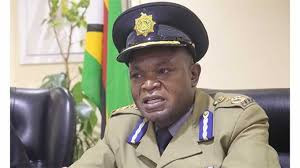
In a significant development, South Africa has decided to extend its military presence in Cabo Delgado until the end of the year. This decision comes as the region experiences intensified clashes between Sadc forces and Ahlu Sunna wal-Jama'a, also known as Islamic State Mozambique (ISM).
The resurgence of ISM attacks since January 2024 has led to increased instability (Crisis Group).
South Africa's contingent, which comprises 1,495 soldiers, constitutes two-thirds of the SADC mission. Initially set to withdraw, Pretoria's announcement on 23 April to extend its deployment reflects growing concerns over the persistent threat posed by ISM (Crisis Group). South Africa's continued presence underscores its commitment to addressing the insurgency.
During one notable operation, the South African forces conducted a raid on a mosque where over 50 ISM militants were hiding. The raid resulted in the detention of four militants and the elimination of the rest during the ensuing conflict. This operation underscores the high-stakes environment and the aggressive tactics employed by the Sadc forces. The insurgents' entrenched positions in civilian areas complicate the military's efforts, often leading to contentious and brutal confrontations.
Residents report that some of the militants' bodies were subsequently burned by the Sadc military, and four detainees died under torture during interrogation. This brutal approach suggests a coordinated change in the tactics of warfare against Ahlu Sunna wal-Jamaa. Previously, similar aggressive operations in the region were conducted by the Dyck Advisory Group (DAG) PMCs, which also collaborated with government forces in the liberation of the city of Macomia from the rebels in 2021 (Grey Dynamics). The transition from private military contractors to state military forces highlights the evolving nature of the conflict and the increasing involvement of national militaries in counterinsurgency efforts.
The continuation of South Africa's military presence in Cabo Delgado, coupled with the reported aggressive tactics, raises questions about the future of military intervention in the region. The decision to extend the mission reflects the complex and volatile nature of the conflict, emphasising the need for a sustained and strategic approach to address the insurgency and stabilise the region. The international community remains divided on the best course of action, with some advocating for increased military presence while others call for a more comprehensive approach that includes political and socio-economic solutions.
As the conflict in Cabo Delgado continues, the local population bears the brunt of the violence. Displacement, loss of livelihood, and fear of militant reprisals are daily realities for many residents. Humanitarian organisations face significant challenges in providing aid due to the ongoing insecurity. The international community, including regional organisations like the African Union and global entities such as the United Nations, must continue to support both military and non-military efforts to restore peace and stability in the region.The complexity of the conflict demands a multifaceted response that addresses the root causes of insurgency, including poverty, marginalisation, and governance issues.
Seraphic Ekane is a Cameroonian political analyst who writes on a variety of topics. He writes here in his personal capacity
- Corruption Watch: The army must act fast
- Corruption Watch: The army must act fast
- New perspectives: Why Southern Africa is facing an energy crisis
- New perspectives: Why Southern Africa is facing an energy crisis










